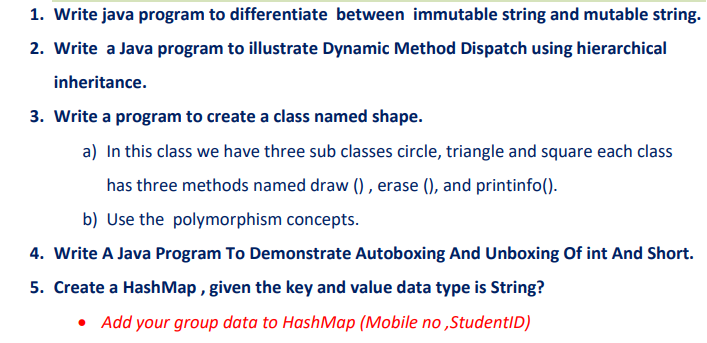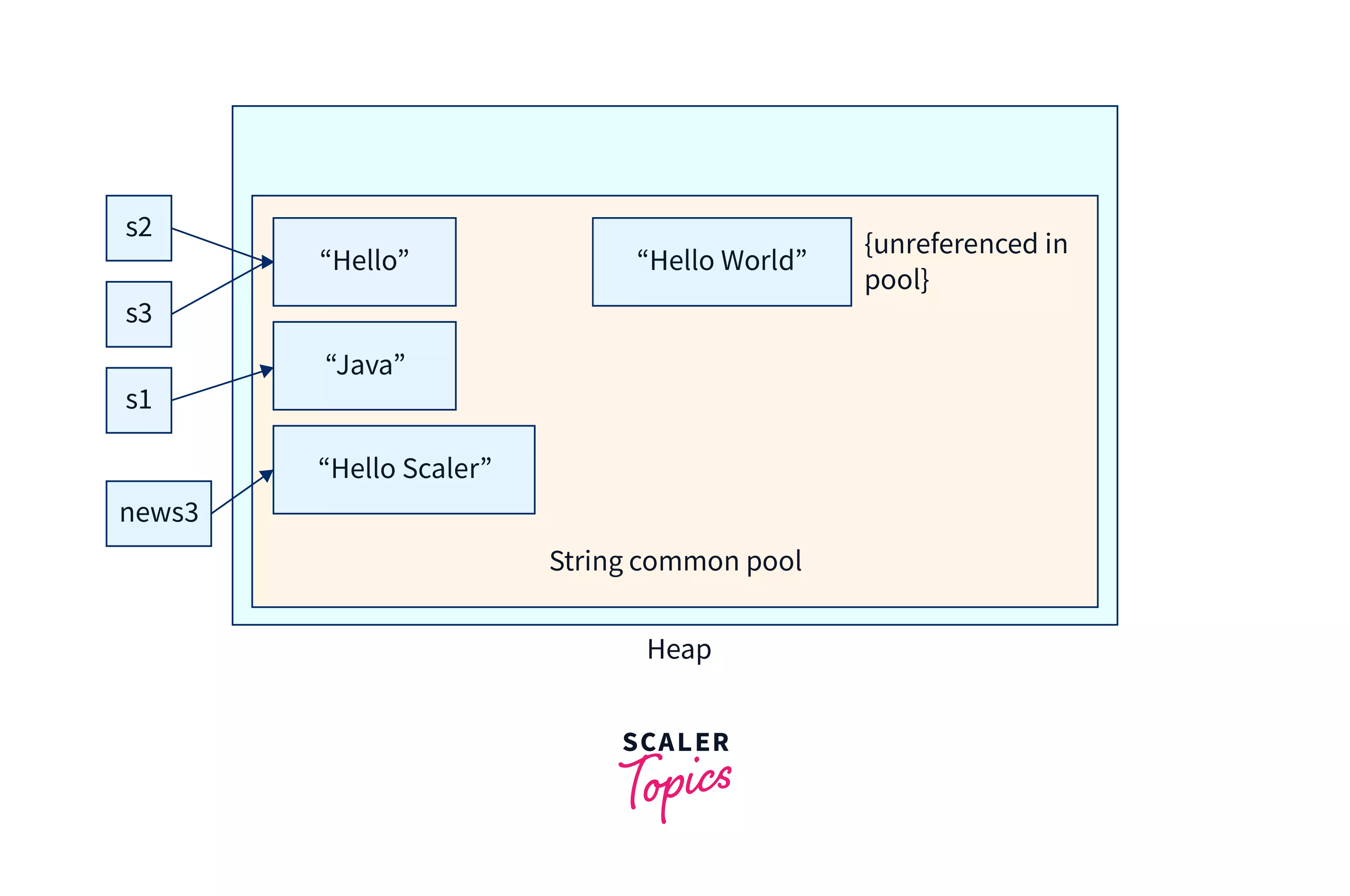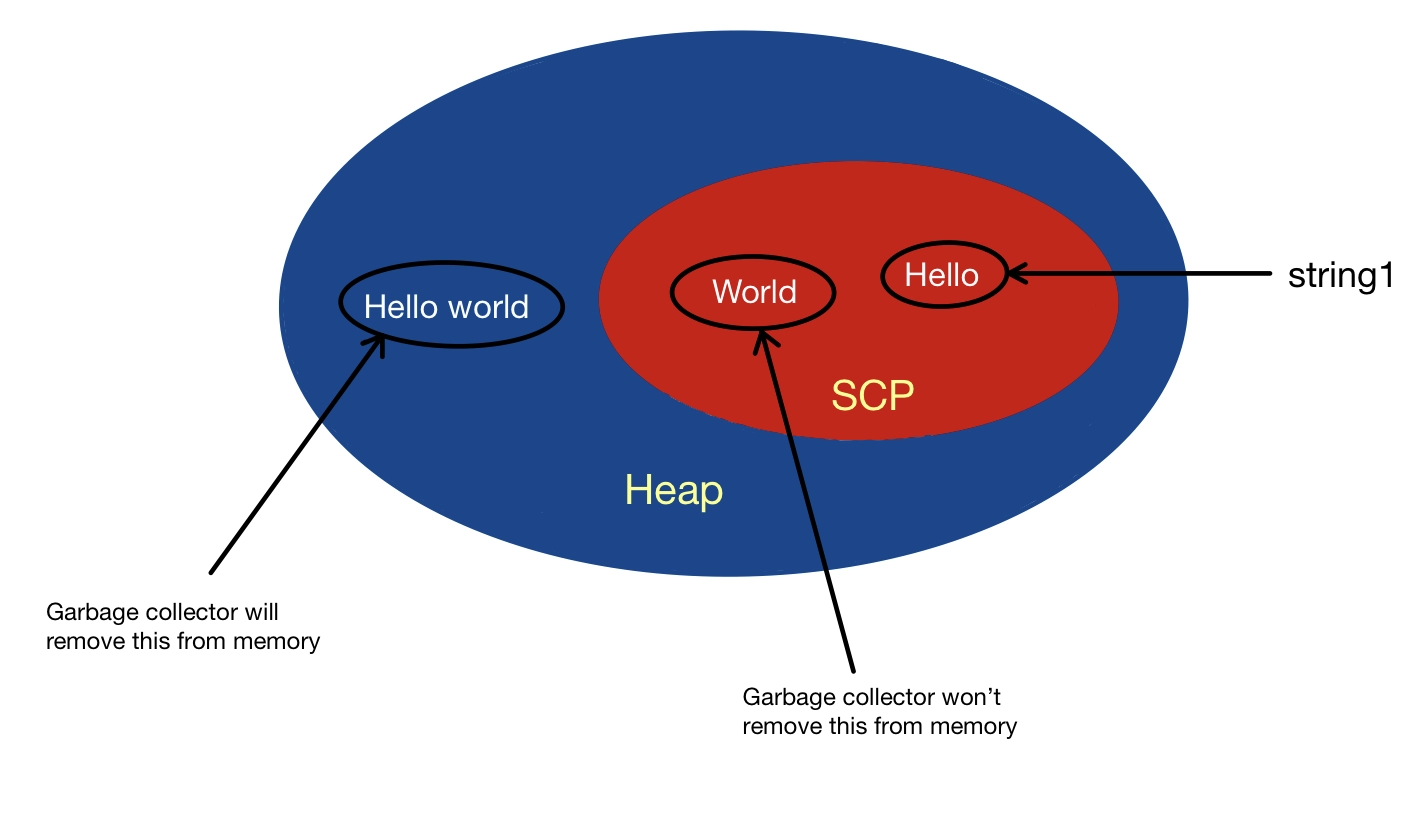Checking Out the Benefits of Unalterable Strings in Modern Programs Paradigms
In the world of contemporary shows standards, the principle of unalterable strings stands as a foundation of robust software application advancement. The benefits they provide exceed mere ease; they essentially change the way information is handled within applications. By adopting immutable strings, designers can ensure enhanced data stability, improved string safety and security, simplified debugging procedures, boosted safety and security actions, and reliable efficiency optimization. These benefits work as a testimony to the extensive impact that accepting immutability can have on the integrity and effectiveness of software application systems.
Improved Information Honesty

By preventing the modification of string items, immutability eliminates the risk of unintentional changes to the data they hold. This not just boosts the safety of the information however additionally enhances the integrity of the code that relies upon these strings.
Immutability additionally sustains more secure multithreading atmospheres, as concurrent access to immutable strings does not present the risk of information corruption via simultaneous adjustments. This residential property simplifies the procedure of handling strings in identical programming scenarios.
In essence, immutability functions as a safety guard around the data kept within strings, boosting their honesty by making certain that once specified, their worths stay unmodified throughout the program's execution.

Boosted Thread Safety And Security
Unalterable strings enhance the string safety of programs by making certain that when a string object is developed, its worth can not be customized. This property removes the risk of concurrent threads trying to modify the exact same string concurrently, which can result in data corruption or irregular states in the program - Why are strings immutable in Java?. In a multi-threaded atmosphere, where numerous threads gain access to and control data concurrently, the immutability of strings gives a level of safety and security by assuring that the data continues to be unmodified throughout its lifecycle
Streamlined Debugging Processes
Offered the boosted thread security promoted by immutable strings, a significant benefit develops in the world of streamlined debugging procedures. Immutable strings, once developed, can not be changed, making it less complicated to trace the flow of data and identify the source of bugs in a program. This immutability ensures that strings stay constant throughout the execution of the program, minimizing the probability of unanticipated changes that can result in errors.
When debugging with mutable strings, developers commonly encounter issues where a string's value is customized inadvertently, making it testing to identify the root cause of an insect. However, with immutable strings, the information continues to be unchanged, allowing programmers to concentrate on evaluating the actual logic of the code instead of tracking down where and when a string was changed incorrectly.
In addition, immutable strings simplify the debugging procedure by allowing much easier recreation of insects. Considering that unalterable strings do not transform state, programmers can recreate and study pests extra effectively, resulting in quicker recognition and resolution of concerns within the codebase. This structured debugging workflow ultimately adds to greater software program top quality and enhanced overall Full Article development effectiveness.

Raised Safety And Security Steps
Enhancing data security and strengthening system integrity, the usage of immutable strings in software applications contributes substantially to enhanced safety procedures. Unalterable strings, when developed, can not be changed, offering a vital protection against harmful tampering or unapproved accessibility. By making certain that delicate data stored in strings remains unchanged throughout the program's implementation, the danger of information violations or shot attacks is substantially lowered. Why are strings immutable in Java?. Unalterable strings also play an important duty in avoiding typical safety and security susceptabilities such as barrier overflows and SQL injection assaults, as efforts to control string information at runtime are inherently limited.
Furthermore, the immutability of strings improves the predictability of program behavior, making it simpler to confirm inputs and avoid unexpected changes that could endanger protection. This predictability streamlines the procedure of auditing and validating code, enabling designers to determine possible security technicalities better. On the whole, incorporating immutable strings right into software advancement techniques not only enhances the robustness and integrity of applications but likewise reinforces their durability versus security risks.
Efficient Efficiency Optimization
Structure upon the foundation of enhanced protection procedures attained via the application of immutable strings, a crucial aspect to take into consideration in software development is effective efficiency optimization. When managing mutable strings, operations like concatenation or substring production frequently result in the development of brand-new string things, causing memory overhead and raised handling time. Nonetheless, with immutable strings, these operations can be optimized to improve efficiency. By enabling strings to stay stable and continuous, immutable strings assist in much better memory management and caching opportunities, inevitably boosting the total efficiency of the software.
Since unalterable strings can not be modified as soon as created, they can be shared across strings without the danger of unanticipated changes, decreasing the requirement click to find out more for synchronization devices and improving concurrency. Immutable strings streamline debugging procedures as developers can rely on that a string's worth will remain constant throughout the program's implementation, getting rid of potential errors triggered by mutable state modifications.
Conclusion
Finally, the advantages of utilizing immutable strings in contemporary programming standards can not be overemphasized. Boosted information stability, enhanced string safety, streamlined debugging procedures, raised protection actions, and reliable performance optimization all add to the total performance of programs jobs. By including unalterable strings right into shows why not find out more techniques, programmers can profit from a much more trusted and durable codebase.
Immutability, a key function of strings in programs languages such as Java and Python, makes sure that when a string item is created, it can not be changed or changed.Unalterable strings enhance the thread security of programs by ensuring that as soon as a string item is created, its worth can not be customized. Unalterable strings likewise play an important role in stopping typical protection vulnerabilities such as barrier overflows and SQL shot assaults, as efforts to control string information at runtime are inherently limited.
By enabling strings to remain stable and constant, unalterable strings assist in better memory administration and caching opportunities, inevitably boosting the overall performance of the software application.
Unalterable strings streamline debugging processes as designers can rely on that a string's value will certainly continue to be consistent throughout the program's implementation, eliminating prospective mistakes caused by mutable state adjustments.